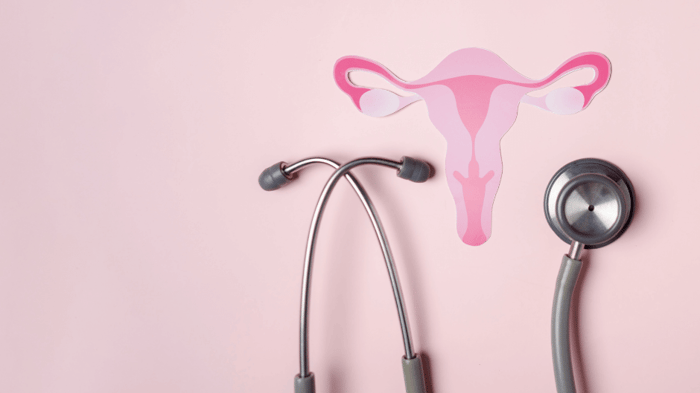Table of Contents
- Beyond Hot Flashes and Hormones
- Why Emotions During Menopause Feel So Intense
- The Loneliness of Silent Struggles
- Anxiety, the Unexpected Guest
- Anger and Irritability Without Apology
- Grief, Identity, and Letting Go
- The Fear of Losing Yourself
- The Emotional Impact on Relationships
- Coping Mechanisms That Actually Work
- Why Talking About It Matters
- Reframing Menopause as a Beginning
- FAQs: The Emotional Side of Menopause
- Owning the Emotional Journey
Beyond Hot Flashes and Hormones
Most menopause conversations are painted in medical terms—declining estrogen, hot flashes, night sweats, hormone replacement therapy. While these realities are important, they overshadow the emotional undercurrent that shapes the day-to-day experience of menopause.
Behind every flush of heat or sleepless night lies something deeper: the fragile balance between identity, memory, desire, and loss. Imagine standing in a crowded room where no one else can hear the music that’s blaring in your head. That’s how many women describe the emotional intensity of menopause—private, overwhelming, and often dismissed.
This blog isn’t about listing symptoms. It’s about giving language to the things that are harder to say out loud: the quiet grief, the unexpected anger, the joy of rediscovering selfhood. Because menopause isn’t just a medical milestone—it’s an emotional revolution.
Why Emotions During Menopause Feel So Intense
Menopause reshapes the brain’s chemistry, but its emotional impact runs far deeper than biology.
Hormonal wiring of emotions: Estrogen plays a role in regulating serotonin, dopamine, and norepinephrine. As levels fluctuate, mood regulation falters. What used to feel like a mild annoyance can suddenly trigger tears or rage.
The layered timeline of midlife: For many women, menopause collides with life’s busiest decade—careers at their peak, children leaving home, parents aging, and marriages evolving. Each of these pressures alone is heavy; together, they amplify emotions.
The symbolism of endings: Menstruation has been part of life for 30–40 years. Its cessation isn’t just physical—it can feel like a cultural and personal marker of aging, one that forces questions about value, desirability, and future purpose.
That intensity is not irrational. It’s the natural result of a body and mind adjusting to a new rhythm. Emotions surge because everything—chemistry, identity, and context—shifts at once.
The Loneliness of Silent Struggles
Silence is the heaviest weight women carry during menopause.
Cultural hush-hush: In Western cultures, aging is often equated with invisibility, especially for women. Conversations about vaginal dryness, low libido, or crying spells are seen as inappropriate. The result? Women whisper their truths or bury them altogether.
Family dynamics: Even with loving partners or children, the response can feel minimizing: “It’s just hormones.” That dismissal tells women that their pain doesn’t deserve space.
Social masks: At work, women may smile through meetings while fighting waves of anxiety inside. In friendships, they may joke about hot flashes rather than admit, “I cried in my car before coming here.”
The silence creates a paradox: women are enduring one of life’s most universal transitions, yet many feel uniquely alone in it.
Breaking this silence—through support groups, open conversations, or even creative outlets—becomes a radical act of self-care.
Anxiety, the Unexpected Guest
Anxiety during menopause is like an uninvited guest who refuses to leave. It shows up in surprising ways:
Body-driven panic: Sudden spikes of adrenaline can trigger heart palpitations, dizziness, or shortness of breath. Women describe these moments as feeling like “mini panic attacks,” even without obvious triggers.
Nighttime dread: Just as the body attempts to rest, anxiety often surges. Thoughts spiral: Am I aging too fast? What if I lose my job? Will I still matter? Insomnia and anxiety form a vicious cycle.
Confidence erosion: Tasks once handled with ease—public speaking, decision-making, even hosting a dinner—suddenly feel overwhelming. This undermines self-esteem, leaving women wondering, “What’s wrong with me?”
Anxiety in menopause isn’t weakness. It’s the physiological reality of shifting hormones colliding with real-life stressors. Recognizing it as valid helps women seek strategies instead of shame.
Anger and Irritability Without Apology
Menopause often removes the internal censor that kept anger tucked away.
Hormonal triggers: Lower estrogen impacts cortisol regulation, amplifying stress reactions. Suddenly, the smallest irritations—traffic, a partner’s comment, clutter on the counter—feel explosive.
Anger as truth-telling: For decades, many women suppress resentment in order to “keep the peace.” Menopause strips away that filter. What looks like moodiness may actually be clarity: an unwillingness to tolerate disrespect, imbalance, or invisibility.
The double standard: Society allows men to age into “grumpy old men” without stigma. Women, by contrast, are told to “calm down.” This makes their anger doubly misunderstood.
Instead of apologizing for irritability, menopause can be a season to honor anger as information—an emotional compass pointing toward unmet needs or unspoken boundaries.
Grief, Identity, and Letting Go
Menopause carries the weight of multiple farewells.
Farewell to fertility: Even women who never wanted children describe the end of fertility as bittersweet. The choice is no longer theirs—it’s biology’s. That loss of agency can sting.
Farewell to the youthful self: Wrinkles, weight shifts, thinning hair—each visible sign can feel like a goodbye to the body once recognized in the mirror.
Farewell to visibility: Many women describe feeling invisible in public, overlooked in professional settings, or dismissed in conversations. That invisibility can feel like grief for social relevance itself.
Yet grief is also a transformation. In the ashes of “what was” lies the chance to rebuild identity—not as diminished, but as redefined.
The Fear of Losing Yourself
Few people talk about the fear of “mental unraveling” that often shadows menopause.
Cognitive fog: Forgetting words mid-sentence, losing keys, or struggling with concentration can feel terrifying. Some women secretly wonder if they’re developing dementia.
Shifts in self-perception: Without the monthly cycle that once defined rhythm, some feel unmoored. The body that once signaled ovulation, fertility, or PMS is now silent, leaving identity questions in its wake.
Fear of permanence: When sadness or irritability lasts for weeks, women wonder, Will I ever feel like myself again? That fear alone intensifies emotional distress.
Naming these fears matters. When spoken aloud, they become less about personal failing and more about shared human transition.
The Emotional Impact on Relationships
Menopause’s emotional storms often ripple outward.
Romantic intimacy: Lower libido and vaginal dryness can strain partnerships. Yet, with supplements like She Juicy, to restore comfort and open communication, trust and intimacy can evolve into something deeper and more authentic.
Friendships tested: True friends lean in when vulnerability is shared. But menopause can expose shallow connections—the ones that prefer gossip over honesty. This pruning can be painful yet clarifying.
Workplace invisibility: Women may fear that emotional shifts or brain fog make them appear less competent. Without a supportive workplace culture, they carry the burden silently, leading to burnout.
Relationships, when nurtured during this stage, can become crucibles of growth rather than sources of additional stress.
Coping Mechanisms That Actually Work
No two women experience menopause the same way, so coping requires a toolkit rather than a single solution.
Therapy and support: Cognitive-behavioral therapy (CBT) helps reframe negative thought patterns, while group therapy normalizes the journey. Talking creates healing.
Lifestyle pillars: Regular exercise not only balances weight but also boosts serotonin. Mindful practices like yoga and meditation regulate cortisol. Nutrition rich in omega-3s, magnesium, and phytoestrogens can support mood stability.
Natural allies: Supplements like She Juicy alleviate dryness, indirectly easing emotional stress by restoring confidence in intimacy. Herbal teas, adaptogens, or magnesium glycinate can also support emotional balance.
Creative release: Painting, gardening, writing poetry, or even dancing in the living room become more than hobbies—they’re lifelines. Creative expression helps metabolize emotions that words cannot.
The key is personalization: building a mix of practices that honor both the mind’s complexity and the body’s shifts.
Why Talking About It Matters
Conversation isn’t just therapeutic—it’s revolutionary. It breaks stereotypes; menopause is too often framed as “the end.” When women openly share their emotional journeys, they dismantle that narrative and rewrite menopause as a transformation.
On the other hand, silence keeps each generation unprepared. By talking openly today, we ensure that daughters and granddaughters won’t face menopause with shame but with knowledge and courage. The simple act of saying, I feel this too, can turn isolation into solidarity.
Reframing Menopause as a Beginning
While menopause marks endings, it also births beginnings.
Freedom from cycles: No more monthly pain, period products, or birth control worries. This freedom creates mental and physical space for new pursuits.
Creative awakenings: Many women describe menopause as a “second adolescence”—awkward at first, but followed by clarity and reinvention. Businesses are launched, art is created, and passions long deferred are pursued with vigor.
Sexual redefinition: With the right support—physical, emotional, and supplemental—sexuality doesn’t end. It deepens, shifting from performance to connection, from obligation to authentic pleasure.
Menopause reframed is not diminishment. Its emergence. It’s the start of living without apology, of valuing presence over performance, and of embracing authenticity as the truest beauty.
FAQs: The Emotional Side of Menopause
Is it normal to feel depressed during menopause?
Yes. Hormonal shifts lower serotonin, and life transitions add weight. Depression is common, but not inevitable, and support is available.
How long do emotional symptoms last?
They vary widely. Some fade within two years, others linger longer. Emotional wellness strategies can ease both intensity and duration.
Can supplements help with emotions?
Indirectly, yes. When physical discomfort is reduced—through natural support like She Juicy—emotional resilience often strengthens.
Do all women experience emotional turbulence?
No. Menopause is highly individual. Some women feel relief, others experience profound upheaval. Both are valid.
What’s the best way for partners to help?
Listen without minimizing, educate themselves, and show patience. Empathy is the foundation of meaningful support.
Owning the Emotional Journey
The emotional side of menopause deserves center stage—not whispered side notes. Anxiety, anger, grief, fear—these aren’t signs of weakness. They’re evidence of transformation.
By speaking them, honoring them, and reframing them, women reclaim the narrative. Menopause isn’t an erasure of womanhood—it’s an initiation into a new era of courage, clarity, and unapologetic authenticity.
What is the most radical thing any woman can do in this stage? Refuse silence. Because in telling the truth about the emotional side of menopause, no one ever has to walk it alone.










